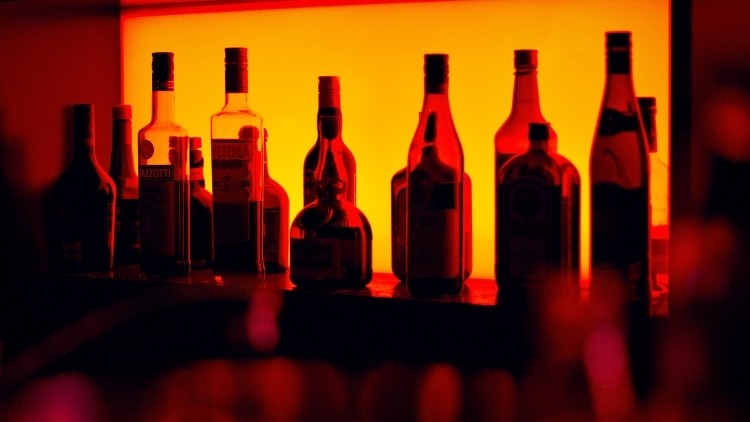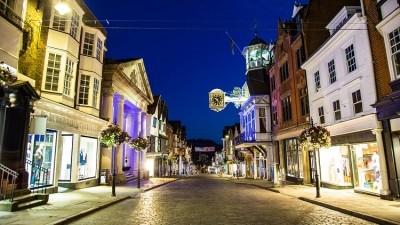Pub companies review late-night working practices following Sarah Everard's death

The death of Sarah Everard following her disappearance on 3 March has sparked a national conversation around women’s safety and prompted a number of pub companies and stakeholders in the late-night economy to reassess what steps they’re taking to safeguard female staff members.
Speaking to The Morning Advertiser (MA) as part of its International Women’s Day coverage, Ema Harker, general manager of the Star in Belgravia, London, stated that “even something simple like deciding how to get home safely after a late finish could pose a particular challenge to women,” when discussing what she perceives to be the biggest barriers facing women in the on-trade.
As such, a number of operators contacted by The MA have confirmed plans to review their working practises, with further schemes and training initiatives to be announced in due course.
“Everyone should be able to go about their everyday lives without fear of attack and recent debates on the issue have spurred us to re-evaluate our current working practices, to check that we are indeed doing everything possible,” Jackie Burn, HR director at Punch – which operates around 1,300 pubs across the UK – told The MA.
“We will be sharing any revised training and safety measures in due course.”
This comes after the Government announced a number of “immediate steps” to improve safety for women and girls in England and Wales following the disappearance and death of Sarah Everard. A Metropolitan police officer has been charged with her kidnap and murder.
However, while an additional £25m has been pledged for better lighting and CCTV, campaigners argue that the money is insufficient and that deeper, institutional change is required.
What’s more, the Government has met with further criticism after announcing that undercover police are to be sent into pubs and clubs as part of a pilot women’s safety initiative.
Nine-in-ten staff have experienced sexual harassment
The managing director of the Good Night Out Campaign, Bryony Benyon – whose organisation has provided training and support for more than 2,000 nightlife workers from more than 250 premises to challenge and prevent sexual harassment and assault – believes that women’s safety should be held in the same regard as any pub, bar or club’s licensing objectives.
“Unite union’s survey findings that 89% of workers in the hospitality industry have experienced one or more incidents of sexual harassment in their working life may shock operators but will not shock those on the sharp end of these experiences, many of whom tell us these intrusions, comments, grabbing and assaults feel like ‘just part of the job’,” she explained. “They should not be.
“We know that premises are rightly focused on their licensing objectives, but we feel that women’s safety should be treated with the same level of importance as your other licensing objectives,” she added.
“Likewise support for LGTBQ+ people including zero tolerance to homophobia and provision of gender-neutral bathroom access on site are crucial in reducing violence and ensuring all colleagues feel safe to be who they are at work.”
‘Women and girls do not feel safe’
According to Benyon, the Good Night Out Campaign’s accreditation programme offers venues, pubs, clubs, event organisers and other businesses in the night-time economy ongoing specialist guidance to help them effectively challenge sexual harassment and assault on their premises.
“This is achieved through posters, clear policy and procedure, plus interactive training workshops delivered by specialist facilitators aimed at increasing the confidence and skills for staff and security,” she said.
What’s more London’s night czar Amy Lamé explained that the city’s Mayor Sadiq Khan has invested £60.5m in tackling violence against women and girls, to support victims, target offenders and change men’s behaviour, and is urging pub, bar, club and restaurant operators to sign up to a Night Safety Charter.
“Over the last week we've seen an outpouring of grief and anger from women in London and across the country, following the tragic death of Sarah Everard,” Lamé said.
“The sad fact is women and girls do not feel safe on the streets of London and we are determined to do all we can to improve their safety.
“We are also working hard to sign up more pubs, bars, restaurants and live music venues to our Women’s Night Safety Charter, which commits businesses to train staff to spot and take action against harassment and intimidation.
“We want as many organisations as possible to sign up to the charter and take action to help women feel safer in the capital after dark.”
Female safety ‘fundamental’
Staff safety is of the utmost importance to pub operator, and winner of the Best Pub Employer (up to 500 employees) gong at the 2020 Publican Awards, the Inn Collection Group – especially for female workers, according to managing director Sean Donkin.
“It is absolutely fundamental as a company that our female colleagues feel safe and are able to carry out their jobs in a secure environment without feeling threatened in any way,” he tells The MA.
“We do everything we can to make female colleagues feel secure while they are at work, but also while travelling to and from shifts and in situations where staff stay on site. It’s something we’ve always prioritised. We speak to our staff and ask them what we can do to make them feel safe in their work and act on it."
Donkin adds that the Inn Collection Group has already invested in technology such as lone worker app OK Alone – which turns a staff member’s smartphone into a lone working device with a built-in panic button feature that can be used both on site and while travelling to and from shifts.
“Our sites are well lit and have state-of-the-art CCTV throughout the interiors and exterior areas, including all entrances and access points,” he added.
“We use trusted taxi companies to take staff home safely after a late finish if they don’t have their own transport. We also integrate personal safety into training for all staff, including specific training for female colleagues.
“Our inns are safe and secure places and we have an open door policy for people to use our premises should they feel unsafe while they wait for a taxi or friend. Our staff are trained to be mindful and offer assistance.”







